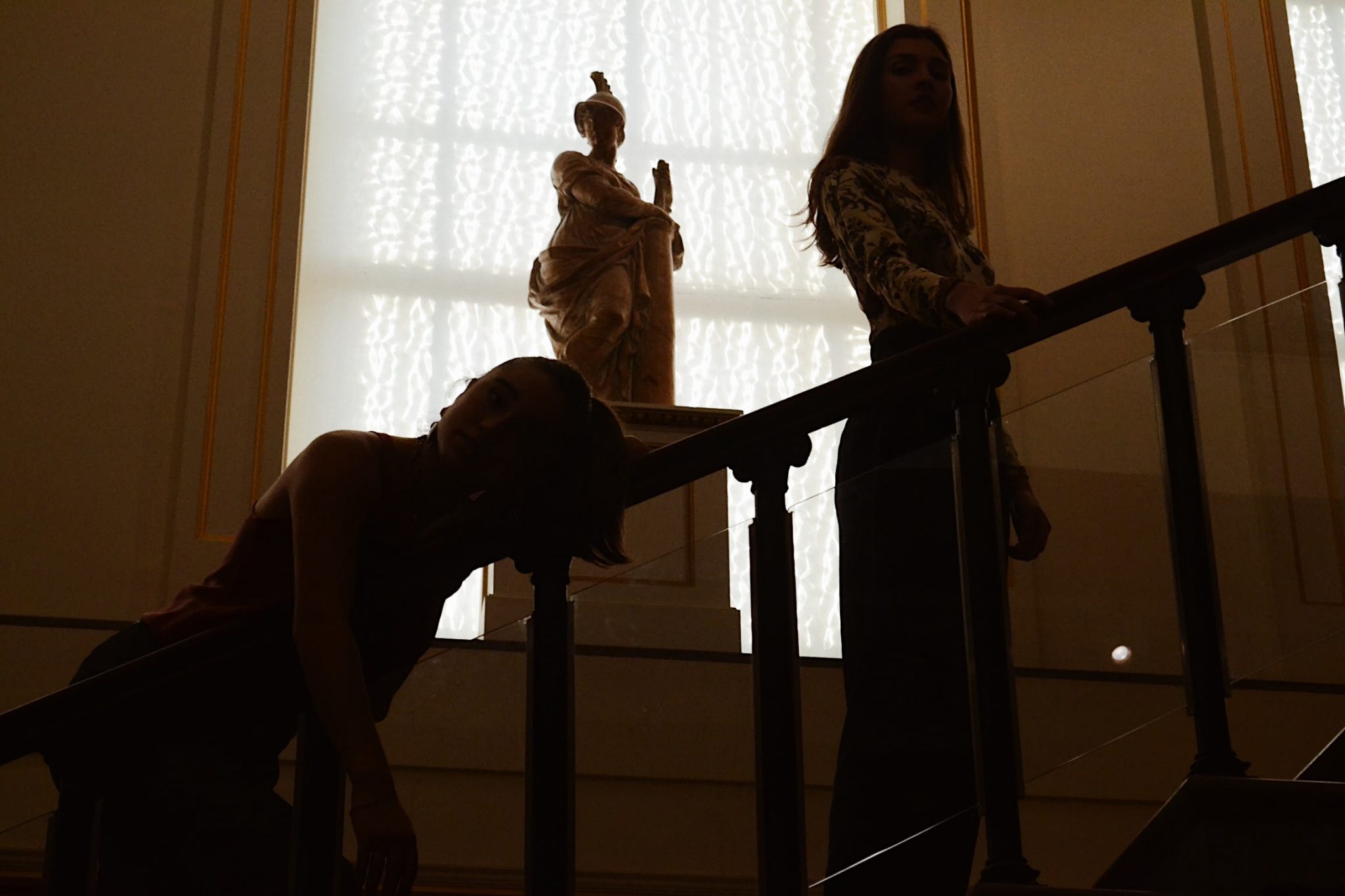May has won the vote but is more alone than ever – Cherwell Comment
Theresa May has won the confidence ballot by 200 votes to 117 and will be permitted to carry on as Prime Minister until Brexit is seen through.
The result has been met by encouragement from May’s most dedicated supporters and scathing criticism from the rest. Philip Hammond said that the result of the vote “is the right one […] Her deal means we will honour the referendum”.
Yet Andrew Bridgen has said that May’s party has merely “kicked the can down the road”. The chaos of May’s struggling attempt to reach an adequate deal is indicative of the division and lack of organisation in her party. With MPs resigning like rats leaving a sinking ship, it is clear that under May’s leadership, the future of Britain is not bright.
May has struggled to fulfil the will and expectations of the nation, and her party is guilty in undermining her, making it impossible for the government to achieve anything beneficial for this country. I do feel some sympathy for May. Once all of this is over, she will be crucified by the opposition, rebels within her own party, and the nation. While much of the chaos can be attributed to her shaky leadership, the rest of the Conservative party, engaging in civil war, are also equally to blame.
On Monday, at the last minute, May postponed the vote on her Brexit deal – yet another example of May failing to fulfil her promise of a “strong and stable” leadership. Her stalling is a move which will mean that when the MPs have to vote on the deal, time will be running out so fast that many will feel shoehorned into agreeing to her deal out of sheer desperation.
The biggest takeaway from this vote is not whether Theresa May is the most suitable leader going forward. It is, instead, that major constitutional changes must not be carried out unless a government has adequate support both from the country, and from within the party. Major constitutional change must not be carried out unless the governing party has the adequate control and ability to ensure that the proposed change can be made.
In the speech May delivered after the vote, she attempted to assure the nation that she will ensure a Brexit that “delivers on the vote that people gave”. But the vote was merely advisory. It was a mistake to treat the vote as binding, and this is the root of all the Brexit shambles. May’s deal is not the deal that the British people voted for.
She claimed that her Brexit deal will “bring the country back together rather than entrenching division.” Yet waves of criticism are hitting May from all sides: from Scotland, from Labour, and from within her own party. She supports the coming together of “politicians on all sides, acting in the national interest”, but if May cannot even get the support of those from within her own party, it is difficult to see how she can convince the opposition to back her deal.
May stated a “renewed mission”: to deliver the Brexit that people voted for; to bring the country back together; and to build a country that truly works for everyone. As more and more of May’s supporters turn into critics, it is clear that May is on the verge of standing alone. May cannot claim that the Conservatives have a renewed, united mission. In the wake of this chaos, it is becoming increasingly difficult to see how she will achieve anything.
After yesterday’s No Confidence vote, the country seems back to square one in the Brexit game- Beatrice Barr
If there’s one thing the Brexit process has taught us all, it’s that it takes 48 letters to derail a Prime Minister.
Months of speculation about whether Graham Brady, the Chairman of the 1922 Committee, had received this magic number of letters from Tory MP’s was put to an end yesterday morning by the announcement of a No Confidence vote in Theresa May.
At face value, a vote of No Confidence in a Prime Minister is a momentous thing, and this is evident by the response of the Twitter commentariat, who went into what can only be described as a ‘meltdown’. It was the kind of morning where the nation was glued to news as we awaited Theresa May’s statement at the podium outside Number 10.
Yet, if the vote is considered in context, it is not ultimately all that important. Yesterday’s vote, as exciting as it might have been, will do nothing to solve Brexit’s nature as the Impossible Problem™. Now that May has won the deal, she will still have to go back to the Commons before the 21stof January deadline, just as before the vote. There will still be no majority in its favour, just as before the vote. And May will face a choice between attempting to renegotiate the deal, pivoting to a ‘soft Brexit’, calling an election, and calling a second referendum, just as before the vote. It’s almost as if the last 24 hours had never happened.
Let’s consider the first of these options, a ‘hard Brexit’: leaving the EU and reverting to WTO trading rules. Though favoured by the most vocal of Brexiteers, this solution is by no means favoured by the Commons, who are largely skeptical, concerned about economic chaos and the general abandonment of any facade of peace in Northern Ireland. A significant effort to push the Article 50 deadline to prevent this eventuality would no doubt emerge.
The alternative, pivoting to a ‘soft Brexit’ along Labour’s lines, similarly lacks the parliamentary arithmetic. As impossible as it seems, Tory Eurosceptics’ cries of betrayal would get even louder than they currently are. One thing that May supporting this deal would remind us is that it’s decades of Tory infighting that got us into this mess, and that the ERG would sooner burn down the party than accept the backstop. What’s more, Theresa May has Arlene Foster on her shoulder. The 10 DUP MPs upon whom May’s government is entirely reliant will not accept any softening of the Irish border; thus, May remains stuck.
In the unlikely event that she calls a General Election little would change. What’s perhaps most impressive about the current political climate is Jeremy Corbyn’s ability to make May look like she’s winning; take PMQs yesterday, which should’ve been an open goal for the Leader of the Opposition, as proof: May would almost certainly win an election. As a result, we would witness a time-consuming, expensive, and ultimately worthless snap election campaign, and end up back at square one.
The final scenario, a second referendum, is perhaps the only foreseeable way for a Brexit bill to be passed. I am a fervent opposer of a ‘People’s Vote’ on the basis that a second referendum, despite noble intentions, would look like telling the people to have another go because they got it wrong the first time. However, we must accept that it is a growing possibility.
Say we had a second referendum with a three-way ballot and preferential voting, as Justine Greening has suggested: in a choice between Remain, May’s deal, and No Deal, the lowest common denominator would be May’s Deal. Were May’s Deal to emerge victorious from a referendum, Parliament would be forced to pass her deal (unless Tory Brexiteers want to reach a new level of hypocrisy and ignore the will of the people), and the Brexit game would be won. But to get to this point would require a complex and controversial set of decisions by May.
May’s current line is that she has no intention of leading the party into the next election, suggesting that her job will be to finish off Brexit and resign. Aside from May’s sacrifice of her career on the altar of Brexit being depressing on a basic human level regardless of political leaning, this plan only works on the shaky presumption that there will be no election until 2022: yet, as Labour-leaning journalists have suggested over the past few hours (http://www.progressonline.org.uk/2018/12/12/why-now-could-still-be-the-right-time-to-force-a-no-confidence-vote/), May’s victory in the Tory No Confidence vote does not guarantee victory in a parliamentary one. Indeed, even if we don’t get an election until 2022, we must ask when exactly May expects Brexit to end before that. Based on the current state of affairs, Brexit is simply not going to happen on March 29th. Brexit is the defining issue of a generation of politicians and voters, and one that will not simply disappear on an arbitrary date to which we’ve been counting down for two years. Thus, May’s current tenure in office looks indefinite, and politics will be synonymous with Brexit for a very long time to come.
Why May Must Stay… for now- Oliver Shaw
Last night’s vote of confidence in the Prime Minister was by no means a victory.
One-third of Theresa May’s own MPs have dealt a crushing blow to both the embattled Prime Minister and her dying Brexit deal. Had she not pledged to step down before 2022’s general election, it is possible that even greater numbers would have deserted.
The decision was the right one – but for all the wrong reasons. May survived not because of the grit and determination which has characterised her tumultuous spell in Number 10, but for two basic and blunt reasons: the lack of an obvious heir, and a rapidly approaching Brexit deadline.
There is still an overwhelming chance that her compromise, her worst-of-all-worlds ‘fudge’ of a deal, will be struck down before the end of January, and a flimsy and dirty pact with the DUP hangs in the balance.
The story might be different had a serious challenge been mounted in the summer, with sufficient time to find and install a new fall guy – also known as ‘Leader of the Conservative Party’. As the Prime Minister pointed out herself with a hint of a smirk this morning, her successor would have no time to renegotiate with Brussels and could be forced to delay the Article 50 period. It could hardly have been a more blatant hint to Brexiteer rivals of the dangers of ousting her.
On the other hand, extending Article 50 would bolster the momentum of the campaign for a second referendum, or so-called People’s Vote. Another national vote – the fourth in five years, assuming it was held next year – would only reopen old wounds, piling further pressure onto existing divisions which have so characterised the Brexit debacle.
What would change? If Remain were to win, would ardent Brexiteer backbenchers really wind their necks in? May has been totally right to slap down calls for a fresh vote, understanding that to overturn the 2016 result would be an affront to the power of popular sovereignty.
If a leadership contest had begun tonight, who could really have stepped up to the plate? Boris Johnson, David Davis, Michael Gove and Jeremy Hunt are too poisonous. The party would be seriously nervous about putting arch-Remainer Amber Rudd in charge. Esther McVey and Penny Mordaunt, leading ladies of Brexit, are yet to make a mark, and Sajid Javid seems to evade any kind of political definition or description at the moment. Dominic Raab is a possibility, but he would surely be held responsible for appeasing May’s avid loyalty to the Chequers settlement.
For all her determination and political courage, it has come to the point that even Theresa May realises that her premiership endures out of pure necessity. She has had far too many chances, and has demonstrated the precarious and fine line between firmness and destructive intransigence.
The Brexit deal has proved universally unpopular, threatening the very integrity of the government and – more importantly – raising grave concerns about both the Northern Ireland backstop and the economic shock to be expected over the coming years. Cabinet ministers have backed the deal so as to save a sinking ship, and not out of enthusiasm for May’s efforts. Tonight, MPs arguably saved her for the same reason.
Today’s result was the preferable one, but it was by no means ideal. She won, but a belittled Theresa May still has to see through her limp and flawed version of Brexit, knowing that her days are numbered. It is likely that the deal – in its current incarnation – will collapse in the Commons, and a major rethink (and maybe May’s resignation) will be inevitable. Brexit was always going to be an uncomfortable process, an awkward stumble out of Europe rather than a smooth and orderly departure. No Deal is still likely, and there’s no guarantee that May’s successor would fare any better.
Theresa May must go – but not just yet. Winning tonight’s vote gives the Prime Minister a further year in office, in theory. She has a smidgen of room for manoeuvre, the chance to tease out final concessions from Europe – a last hallelujah, perhaps. Maybe she can even bring about some much-needed unity, a final push for the best possible Brexit in the circumstances.
But don’t be fooled: a larger proportion of MPs voted for May today than did in 2016, but this time it was out of necessity and desperation. Theresa May must be given these final months to see through what now seems an impossible task. But then, and only then, she must leave.
As Eden is so inextricably associated with the Suez disaster of 1956, so Theresa May will forever be remembered as the Brexit Prime Minister. Her image is toxic, and her continued leadership could, in the long term, be destructive for both the Conservative Party and for Britain.
But who knows – perhaps history will be kind to Theresa May.



















